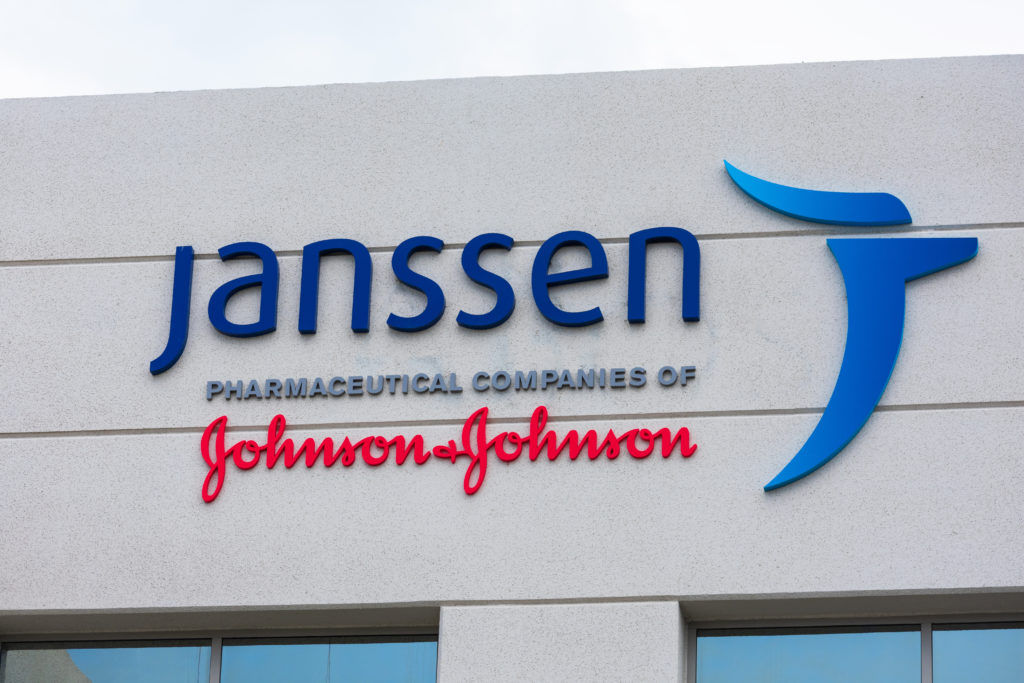The Janssen Pharmaceutical Companies of Johnson & Johnson announced that the US Food and Drug Administration (FDA) approved Tecvayli (teclistamab-cqyv) for the treatment of relapsed or refractory multiple myeloma. Patients are eligible for the drug if they have previously received four or more lines of therapy, including a proteasome inhibitor, immunomodulatory drug and anti-CD38 monoclonal antibody — this can include a combination of the different drugs.
Tecvayli is a first-in-class, bispecific T-cell engager antibody administered as a subcutaneous treatment. The off-the-shelf (or ready to use) therapy targets the CD3 receptor expressed on the surface of T cells and simultaneously binds to the B-cell maturation antigen (BCMA) expressed on the surface of multiple myeloma cells and some healthy B-lineage cells. The dual engagement induces T cell activation to direct the killing of the target cancer cells.
The FDA approval of Tecvayli makes it the first bispecific BCMA-directed CD3 T-cell engager approved in the US. Johnson & Johnson and Legend Biotech’s Carvykti, a BMCA-targeting CAR-T therapy, was approved in March, and like Tecvayli, is also indicated as a fifth line treatment for multiple myeloma.
The drug’s European label is a little less stringent, as patients can receive the drug after having undergone just three prior therapies as opposed to four with the US indication.
Related: Johnson & Johnson’s Carvykti Becomes Second FDA Approved Cell Therapy for Multiple Myeloma
Tecvayli is Johnson & Johnson’s fourth approved treatment for multiple myeloma. The company said the approval further diversifies the company’s industry-leading oncology portfolio and deepens its commitment to discovering and developing therapies for multiple myeloma.
Johnson & Johnson said the indication was approved under accelerated approval based on response rate, and continued approval for this indication may be contingent on verifying and describing clinical benefit in confirmatory trial(s).
Tecvayli’s approval was based on results from the Phase II MajesTEC-1 clinical trial that included heavily treated patients who had received three or more lines of prior therapy, with a median of five prior treatments and 78 percent of patients having received four or more prior lines of therapy.
Among the cohort of 110 patients, the overall response rate (ORR) was 61.8 percent. Significantly, 28.2 percent of patients achieved a complete response (CR) or better.
The median time to first response was 1.2 months and at a median follow-up of 7.4 months, the estimated duration of response (DOR) rate was 90.6 percent at six months and 66.5 percent at nine months.
Tecvayli comes with a boxed warning as it can potentially have some serious side effects, including cytokine release syndrome and neurologic toxicity. The same is the case for Carvykti and like it, the drug can only be available through a risk monitoring program, which for Tecvayli is Tecvayli Risk Evaluation and Mitigation Strategy (REMS).
Tecvayli was reviewed by the FDA under Project Orbis, a program that allows for the concurrent submission and evaluation of oncology drugs among international regulators. Authorities in Australia, Brazil, Canada and Switzerland also participated in Tecvayli’s application and will make their own decisions on the drug.
In addition to Carvykti and now Tecvayli, there are a growing number of BCMA agents for multiple myeloma, including Bristol Myers Squibb’s BCMA-targeted CAR-T therapy Abecma, and GSK’s antibody-drug conjugate Blenrep. All four are indicated as a fifth line treatment but trials are being conducted to evaluate them in different combination therapies to try to increase the treatment order.
Johnson & Johnson has set Tecvayli’s list price at $39,500 per month, according to a company spokesperson. Based on trial data, an average patient is likely to take the drug for around nine months to ten months, making the total cost $355,500 to $395,000 on average, before any rebates or discounts.












Join or login to leave a comment
JOIN LOGIN